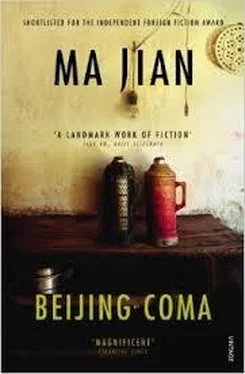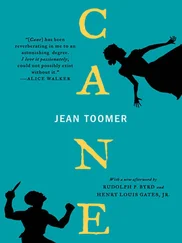‘I’ve heard rumours that student leaders have been pilfering money from the donation boxes,’ I said. ‘I thought we came here to fight corruption and embezzlement!’
‘Yes, I’ve heard the Federation has stashed away 10,000 yuan, all in hundred-yuan notes!’ Bai Ling said angrily to Fan Yuan. ‘That’s people’s hard-earned money you’re stuffing your pockets with!’
‘That’s a false rumour!’ Fan Yuan retorted.
‘If you lot hadn’t started the hunger strike, we wouldn’t be facing martial law now,’ said Sister Gao. ‘You’ve even told the students to set fire to themselves if the police try to arrest them.’ She knew that Bai Ling’s criticism of the Beijing Students’ Federation was a veiled attack on her, and wanted to bring the argument out into the open.
‘That wasn’t my idea!’ cried Bai Ling. She was much shorter than Sister Gao, but her voice was twice as loud. She had the forceful, insistent air typical of girls from Shandong.
‘Well you claimed it was your idea in the newspaper interview that was published yesterday,’ Sister Gao replied. ‘Someone must keep a check on the finances. We’re spending tens of thousands of yuan a day on food.’
‘You should stop going out for meals at Kentucky Fried Chicken then!’ Bai Ling screamed, her face bright red. ‘The donations you’re spending were for the hunger strikers, not for you lot!’
‘Tell me how much money is donated to you every day!’ Wang Fei shouted, pointing to Fan Yuan’s nose. ‘I want the exact figure.’
‘It varies. We have two officers looking after the finances.’ Fan Yuan seemed afraid that Wang Fei was about to turn violent.
‘When we didn’t have enough cash to buy face masks and towels, we asked you to lend us some money, but you only gave us seven hundred yuan,’ Wang Fei said. ‘You behave like little emperors!’ Then, turning to Sister Gao, he said, ‘I’ve heard you’ve siphoned off a million yuan that was donated to the hunger strikers.’
‘Rubbish! Old Fu’s been looking after the Federation’s finances too, so if you don’t believe me, ask him,’ Sister Gao replied.
‘Mou Sen knows more about the finances than me,’ Old Fu said, sitting down on a plastic barrel.
‘You’re deliberately sabotaging our movement!’ Bai Ling said, pointing her finger aggressively at Sister Gao, her little chest puffing with rage.
Tian Yi pulled me aside and whispered, ‘I’m fed up with Bai Ling. She keeps flying off the handle. She never used to argue like this back in the dorm.’
We walked over to the marble balustrades at the edge of the terrace. Tian Yi raised her camera and was about to take a picture, but the huge crowd below made her feel self-conscious, and she quickly put it down again.
‘Mou Sen’s got a bodyguard as well now,’ Tian Yi said. ‘He’s acting like a leader.’ Her skin was sallow, and her eyeballs looked yellow too.
‘As soon as students from the provinces turn up, he assigns them work and gives them money, so he’s built up a big army of supporters,’ I explained.
The workers of Beijing had formed an autonomous federation and erected a tent on the northern edge of the Square. Fragments of their broadcast blew over in the warm breeze: ‘Many soldiers have already sneaked into the city in plain clothes… Tonight, five army divisions will be airlifted into the Square…’
I looked beyond their tent to Tiananmen Gate where Chairman Mao’s huge face was gazing down on the crowds; then south to the Mausoleum where his embalmed remains were housed. The sight of that grey concrete building sickened me. I wished the students would storm inside, drag Mao’s corpse out and fling it over the walls of Zhongnanhai. The two immense sculptures of revolutionary peasants and workers that flanked the Mausoleum were dotted with students. They perched like spiders on the marble shoulders, legs and outstretched arms. A few were even sitting on the heads, making the statues look like mythical creatures from The Book of Mountains and Seas .
‘Let’s go and have something to eat,’ I said.
‘I’ll never be able to squeeze through that crowd,’ Tian Yi said. She was wearing a necklace of coloured glass beads she’d bought in Yunnan.
‘Walk behind me. I’ve got trainers on, so I can easily barge my way through.’
The restless, sweaty bodies below us suddenly resembled maggots wriggling over a lump of meat. We descended to the lower terrace and slowly pushed our way into the tightly packed crowd. It was almost impenetrable. When someone in front of us wanted to go to the toilet or look for a friend, a tiny crack would open, and we could follow behind them for a while. The people lining these narrow pathways, which coursed through the Square like veins, would instinctively raise a foot or shift their shoulders back to make way for us as we passed. If they happened to be sitting down, we had no choice but to climb over their heads. When someone shouted a new slogan, the crowd’s focus would shift, and a new path would open for a second before quickly closing again, like a wound healing over. But there was always a circle of space around anyone holding a Communist Party flag, a national flag, or a Communist Youth League banner.
With great effort, we managed to climb over the metal railings that circled the base of the Monument, squeeze our way over to the Museum of Chinese History, push through the crowds under the trees and leave the Square at its north-eastern corner. By the time we finally disentangled ourselves from the throng, the biscuits in my bag were crushed to a pulp and my body felt like a broken abacus.
‘Damn, my lens cap got pulled off,’ Tian Yi sighed, her hair in wild disarray.
When the midday light slants onto your face, a smell of soap rises from your skin. You lie slumped inside your body, just as your body lies slumped on the iron bed.
I hear a pigeon flapping away the air as it lands on a branch of the locust tree outside, and for a moment I see the world through its eyes. The red-tiled roof of the apartment building behind is covered with dust and fallen leaves. The locust tree is dark grey. When the sun comes out, residents nail washing lines to the trunk, tie them to their windows and hang out their quilts to dry, making the tree resemble an open umbrella-frame festooned with damp cloths. When it rains, the tree’s bark turns black and the leaves appear greener and paler. The tree is almost as tall as our building. At night, whether lights were shining in the windows, or a power cut had plunged the compound into darkness, I always felt safe when standing beneath its branches.
My hearing has become very acute after these years of living in the dark. I can distinguish the different noises from every flat in this building. The sounds are especially clear in the hour before dawn. It’s the afternoon now, and I can hear the yelping lapdog a neighbour bought last week, and the clucking hen downstairs that will soon become chicken soup. In her flat on the ground floor, Granny Pang is saying, ‘That boy Dai Wei hasn’t got much longer to live. There was blood in his urine a couple of days ago.’
‘He’s not really in a coma — he’s just pretending,’ her daughter replies, pushing down on a creaking door handle. ‘But he’s ruined the feng shui of our block.’
The man in the flat next door says, ‘She’s lucky to have her son to sing to. No one else would put up with all that shrieking!’ He can’t stand my mother’s singing, and I can’t stand his son flinging objects against the walls. The constant bashing makes me think of the layers of bricks of this building pressing down on each other.
For a moment I leave my slumbering body and hover in the fusty air of the room. I see myself sprawled across the bed, not in pyjamas now, but in a shirt and trousers. I can feel the belt’s brass buckle press coldly against my navel. Then I see myself getting up and walking down the street. I run over and pat myself on the back.
Читать дальше












